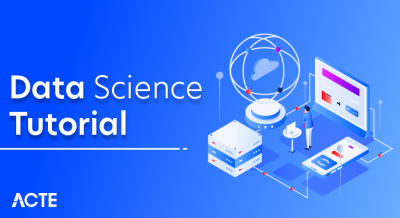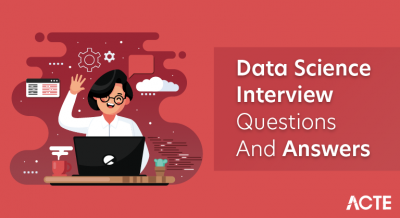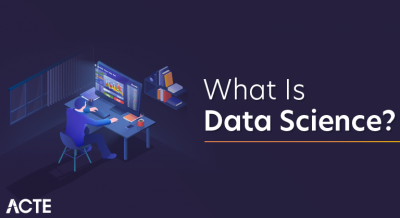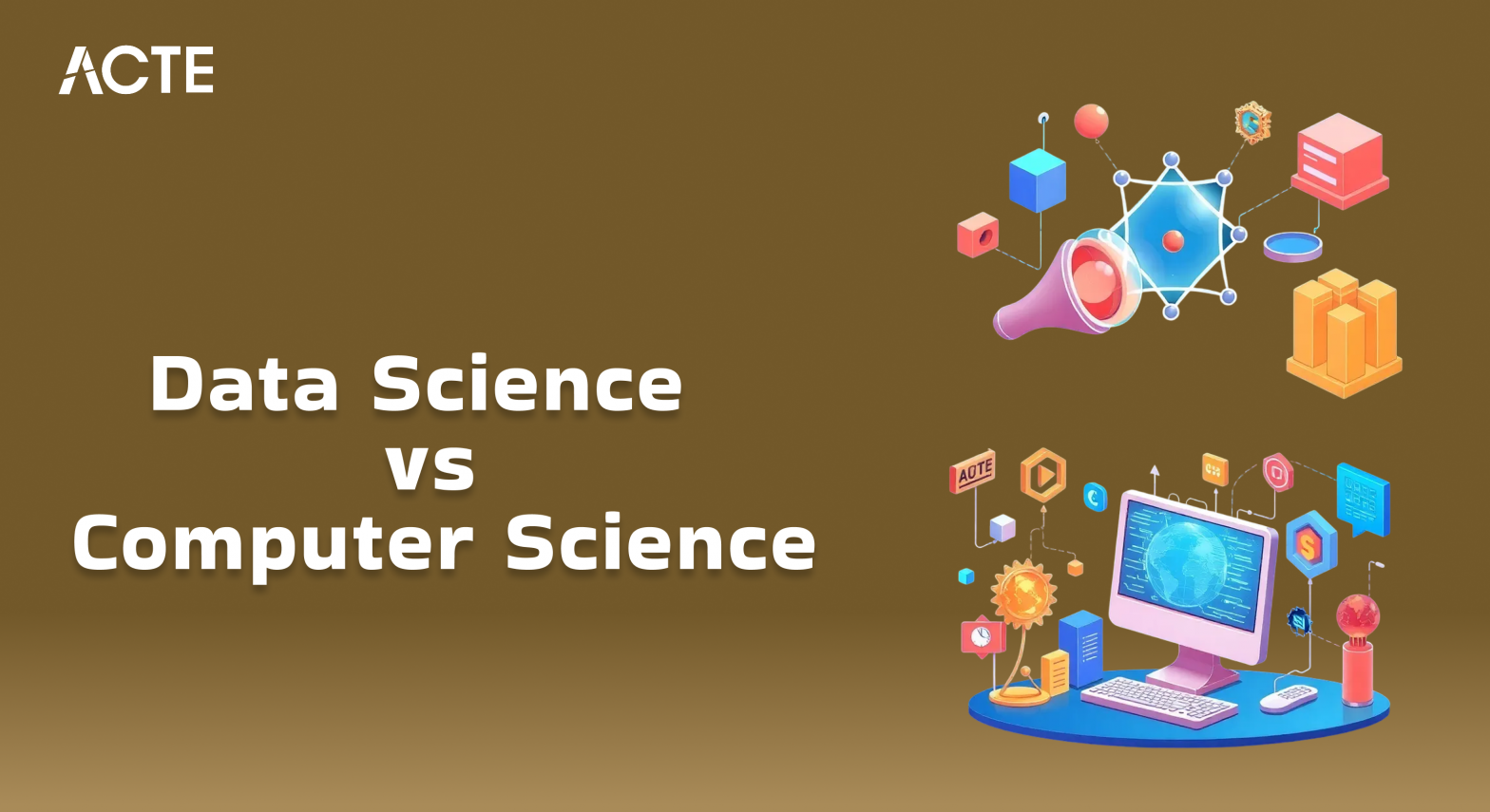
- Introduction to Data Science and Computer Science
- Definition and Scope of Both Fields
- Key Differences in Skills and Tools
- Programming Languages Used
- Applications of Data Science
- Applications of Computer Science
- Career Opportunities in Both Fields
- Required Educational Background
- Salary Comparison
- Real-World Use Cases
- Tools and Technologies Used
- Choosing the Right Career Path
Introduction to Data Science and Computer Science
In today’s digitally driven world, Data Science and Computer Science stand out as influential fields shaping technological progress and economic advancement. Though both arise from the broader computing domain, they differ in their core focus, required skill sets, and real-world applications. Data Science centers on analyzing large datasets to uncover patterns and generate actionable insights using tools like statistics, machine learning, and data visualization. Data Science Training can help you acquire these essential skills and stay ahead in the field. Meanwhile, Computer Science delves into the fundamental principles of computing, emphasizing algorithms, software development, and systems architecture. Despite these differences, the two fields frequently intersect in areas such as artificial intelligence, data engineering, and software solutions, creating opportunities for collaboration and innovation. Understanding where they diverge and overlap is essential for students planning their education, professionals navigating career paths, and educators shaping future curricula. Gaining clarity on these distinctions enables individuals to make informed decisions, align their strengths with industry needs, and build successful, future-ready careers in the rapidly evolving tech landscape.
Would You Like to Know More About Data Science? Sign Up For Our Data Science Course Training Now!
Definition and Scope of Both Fields
Data Science is an interdisciplinary field that integrates elements of statistics, computer science, and domain-specific knowledge to derive valuable insights from both structured and unstructured data. It involves various processes such as data collection, data cleaning, exploratory data analysis, statistical modeling, machine learning, and data visualization, all aimed at uncovering patterns and supporting data-driven decisions. Data Science Is a Good Career for those who are passionate about data and problem-solving. On the other hand, Computer Science focuses on the study of algorithms, computational theory, and the design and development of systems. It covers a broad range of subfields, including software engineering, artificial intelligence, computer networks, cybersecurity, operating systems, databases, and theoretical computer science. While Data Science emphasizes leveraging data to drive predictive analytics, automation, and strategic insights, Computer Science underpins the core principles of computing technology, providing the frameworks necessary for building software applications, hardware systems, and digital infrastructure. The two fields, though distinct in purpose and methodology, often complement each other in practice. Data Science relies on computational tools and algorithms developed through Computer Science, and innovations in computing are increasingly shaped by data-driven approaches. Understanding the unique scope of each discipline and how they intersect is essential for navigating today’s technology landscape, enabling professionals and students to align their skills with evolving industry demands and contribute effectively to digital transformation initiatives.

Key Differences in Skills and Tools
Data scientists and computer scientists, while both rooted in programming and analytical thinking, possess distinct skill sets tailored to their specific domains. Data scientists are expected to have a strong foundation in statistics, data manipulation, and machine learning. Their work involves extracting insights from data, which requires proficiency in tools like Jupyter Notebook, RStudio, and Tableau, as well as libraries and frameworks such as pandas, scikit-learn, TensorFlow, and Matplotlib. These tools enable them to clean, analyze, model, and visualize data effectively, supporting data-driven decision-making processes across various industries. Data Engineer Salary in India is a valuable factor to consider when evaluating a career in data engineering. In contrast, computer scientists are primarily concerned with algorithmic problem-solving, data structures, and the design and development of computing systems. They utilize integrated development environments (IDEs) such as Visual Studio, IntelliJ IDEA, and Eclipse, alongside tools for version control, software testing, and debugging to create efficient, scalable software solutions. Although both professions require strong programming skills, the emphasis differs: data science prioritizes statistical reasoning, pattern recognition, and data interpretation, while computer science focuses on logical reasoning, system architecture, and the software development lifecycle. Understanding these nuanced differences helps clarify the unique contributions each role makes to the tech ecosystem, guiding individuals in choosing the right career path and equipping them with the appropriate tools and knowledge to succeed in their respective fields.
Programming Languages Used
In the realm of data science, Python and R stand out as the most widely used programming languages, largely due to their extensive ecosystems of libraries designed for data manipulation, statistical analysis, and machine learning, coupled with their ease of use and readability. Python, in particular, is favored for its versatility and support for powerful libraries such as NumPy, pandas, scikit learn, and TensorFlow, while R remains a top choice for in-depth statistical modeling and data visualization. Data Science Training can help you master these languages and tools for a successful career in the field. SQL is another essential language in the data science toolkit, enabling efficient querying and management of structured data within relational databases. Additionally, languages like Scala and Julia are gaining popularity, especially in high-performance computing and big data environments, where speed and scalability are crucial. On the other hand, computer science professionals employ a broader and more diverse set of programming languages based on their area of focus. Java, C++, C#, and Python are frequently used for general-purpose software development, offering robustness and performance across various platforms. JavaScript plays a critical role in web development, enabling dynamic, interactive front-end experiences. Meanwhile, modern and system-level development often calls for languages such as Go, Rust, and Kotlin, which provide advantages in terms of concurrency, safety, and modern syntax. Each language serves a specific purpose within the technology landscape, and understanding their applications helps individuals align their learning with industry needs, whether they are aspiring data scientists focusing on data-centric tasks or computer scientists building the infrastructure that powers digital systems.
Applications of Data Science
Data science is transforming various industries through predictive analytics, pattern recognition, and automation. Applications include:
- Healthcare: Disease prediction, drug discovery, and personalized medicine
- Finance: Fraud detection, algorithmic trading, and credit risk modeling
- Marketing: Customer segmentation, sentiment analysis, and campaign optimization
- Retail: Demand forecasting, recommendation engines, and inventory optimization
- Transportation: Route optimization, traffic prediction, and autonomous vehicle data processing
- Software Development: Mobile apps, desktop applications, enterprise software
- Cybersecurity: Intrusion detection, encryption, and security protocols
- Networking: Internet protocols, wireless communication, and cloud infrastructure
- Artificial Intelligence: Natural language processing, robotics, and computer vision
- Database Management: Design, implementation, and maintenance of data storage systems
- Entry-Level: Data scientists typically earn $70,000–$90,000 annually, while software developers earn $65,000–$85,000.
- Mid-Level: Data scientists may earn $100,000–$120,000, and experienced developers earn around $90,000–$110,000.
- Senior-Level: Lead data scientists and machine learning engineers can earn $130,000–$160,000, while senior software engineers and architects can command $120,000–$150,000 or more.
- Netflix uses data science for personalized recommendations.
- Amazon applies predictive analytics for inventory and logistics.
- Credit card companies detect fraud using machine learning algorithms. Computer Science Use Cases:
- Google Search is built on algorithms and distributed systems.
- Operating systems like Windows and Linux are products of system programming.
- Secure payment gateways are designed using cybersecurity principles.
Applications of Computer Science
Computer science is foundational to many technologies and systems we use today. Applications include:
Want to Pursue a Data Science Master’s Degree? Enroll For Data Science Masters Course Today!
Career Opportunities in Both Fields
The career opportunities in both data science and computer science are vast, dynamic, and in increasingly high demand across industries. In the field of data science, professionals can pursue roles such as Data Scientist, where they analyze and interpret complex datasets to support strategic decisions; Machine Learning Engineer, who builds and optimizes algorithms that enable systems to learn from data Data Analyst Salary Insights which provides important salary trends for data analysts; Business Intelligence Analyst, who transforms data into strategic business recommendations; and Data Engineer, who designs and maintains the architecture and pipelines that enable data flow and storage. Meanwhile, computer science offers a similarly diverse range of career paths, including Software Developer, focused on designing, coding, and testing software applications; System Architect, who defines the structure and design of complex computing systems; Network Engineer, responsible for designing and maintaining communication networks; Cybersecurity Analyst, who protects systems and data from digital threats; and Database Administrator, tasked with managing and securing large-scale databases. Both fields present ample opportunities in a wide array of environments, from innovative startups and global tech corporations to government agencies, research institutions, and academia. As technology continues to evolve, the demand for skilled professionals in these domains remains strong, making both data science and computer science compelling and future-proof career choices for individuals seeking to make an impact in the digital age.
Required Educational Background
Pursuing a career in either data science or computer science requires a solid educational background and a relevant set of technical skills, though the specific academic and professional pathways differ slightly between the two. For aspiring data scientists, a strong grasp of mathematics, statistics, and programming forms the foundation of success, as these skills are crucial for analyzing data, building models, and deriving actionable insights. Most data scientists hold degrees in fields such as computer science, statistics, mathematics, or dedicated data science programs, with many advanced roles requiring a master’s degree or even a Ph.D., particularly in research-driven or highly specialized positions. On the other hand, a career in computer science typically begins with a bachelor’s degree in computer science, software engineering, or a related discipline, which equips students with core knowledge in algorithms, data structures, software development, and system design. Explore Artificial Intelligence Techniques for those interested in specialized fields like AI. For more specialized roles in areas like artificial intelligence, cybersecurity, or systems architecture, further education at the graduate level may be necessary. In both domains, industry-recognized certifications can significantly enhance employability and demonstrate expertise. For data science professionals, certifications such as the Microsoft Certified: Azure Data Scientist Associate or Google Professional Data Engineer validate proficiency in data handling and cloud-based analytics. For computer science professionals, credentials like CompTIA Security+, AWS Certified Developer, or Oracle Certified Java Programmer are highly regarded and showcase technical competencies across software development and system security. These educational qualifications and certifications not only help candidates stand out in competitive job markets but also ensure they remain adaptable and relevant in rapidly evolving tech landscapes.
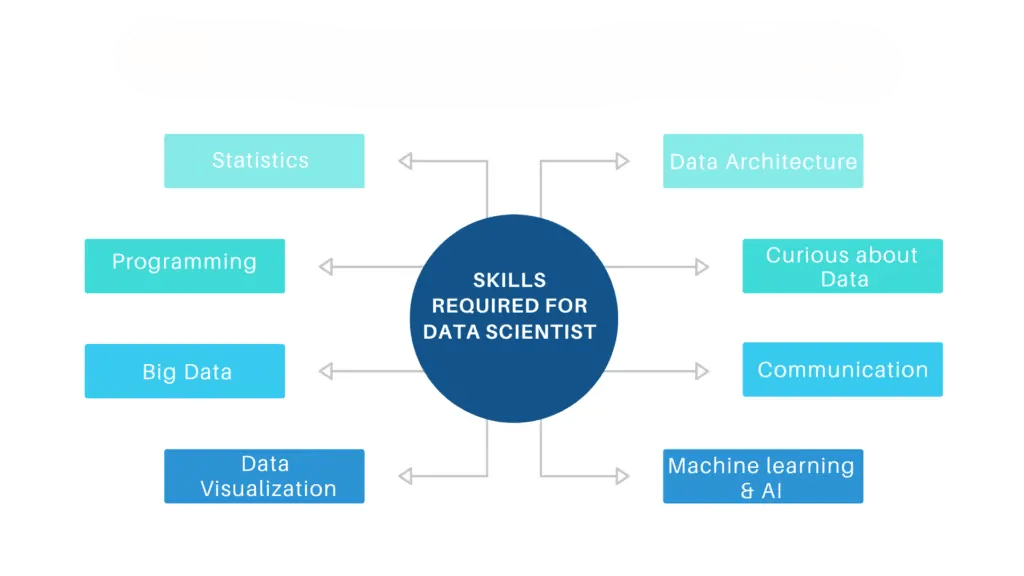
Salary Comparison
Salaries vary based on experience, location, and industry. However, both fields offer lucrative compensation:
Real-World Use Cases
Data Science Use Cases:Tools and Technologies Used
The tools used in data science and computer science reflect the distinct focuses and workflows of each field, though there is often some overlap depending on the project or specialization. In data science, professionals commonly use platforms like Jupyter Notebook and RStudio for interactive coding, data analysis, and visualization. Python plays a central role, supported by a suite of powerful libraries such as NumPy for numerical computing, pandas for data manipulation, scikit-learn for machine learning, and TensorFlow for deep learning applications. For visualizing data insights and creating dashboards, tools like Tableau and Power BI are widely adopted. When working with massive datasets, big data technologies such as Apache Spark and Hadoop are essential for processing and analyzing information at scale. Explore a guide HR Analytics Insights can provide valuable knowledge about how data science intersects with human resources management. In contrast, computer science professionals rely on a broader range of tools focused on software development, system design, and infrastructure management. Popular integrated development environments (IDEs) like Visual Studio, IntelliJ IDEA, and Eclipse are central to coding and debugging tasks. Core programming languages include Java, C++, C#, and Python, each selected based on application requirements. Version control systems such as Git and SVN help manage code collaboration and track changes efficiently. For deployment and operational efficiency, DevOps tools like Docker for containerization, Jenkins for continuous integration and delivery, and Kubernetes for container orchestration are commonly used. Additionally, cloud computing platforms such as Amazon Web Services (AWS), Microsoft Azure, and Google Cloud provide scalable environments for developing, testing, and deploying applications and data solutions. Together, these tools empower professionals to build, manage, and optimize systems or analyze data effectively in their respective domains.
Choosing the Right Career Path
Choosing between data science and computer science ultimately depends on an individual’s interests and long-term career aspirations. For those who enjoy working with data, statistical analysis, and uncovering actionable insights from large datasets, Data Science Training is an ideal way to develop the skills needed to thrive in this field. It’s a field where problem-solving revolves around data-driven decisions and predictive modeling. On the other hand, if you prefer tackling system design, software development, and engaging in algorithmic thinking, computer science is likely the better choice, focusing on the foundations of computing, software architecture, and optimizing technological solutions. Data science roles are generally more analytical and project-focused, requiring professionals to work on specific tasks like data manipulation, machine learning, and statistical analysis to meet business needs. In contrast, computer science roles span a wider variety of development, infrastructure management, and system design, offering opportunities to build software, create networks, and develop new computing technologies. Both fields share the need for continuous learning and adaptability due to the rapid pace of technological advancement. Despite their differences, both data science and computer science offer dynamic and rewarding career paths. In fact, many professionals choose to blend skills from both fields, becoming versatile tech experts who can navigate the intersection of data analysis and computing technology, making them highly valuable in a world that is increasingly driven by data and digital transformation.


